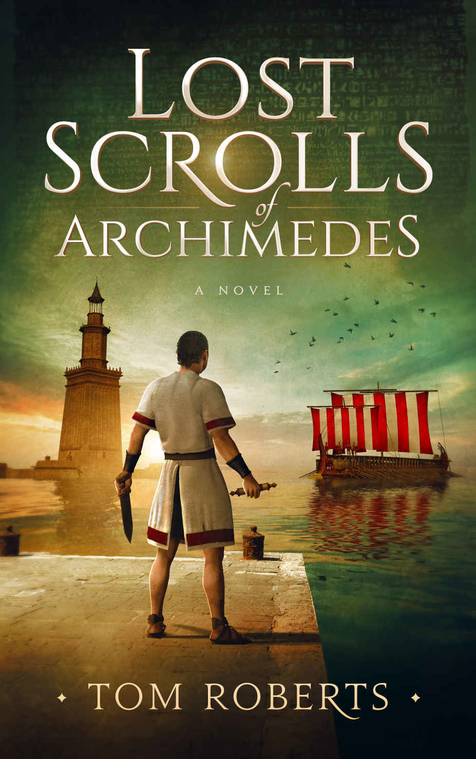
A young dreamer is thrown into a life-altering adventure to protect ancient knowledge in Lost Scrolls of Archimedes, the first in the new Lost Artifacts series from author Tom Roberts. Boasting a brilliant blend of historical reference and fictional mystery, this is a feast for the senses for readers who love a free-wheeling escape into the past.
The all-powerful Oracles demand that Hippolytus secure the fabled scrolls of Archimedes, but the scholar’s desire to decode them himself draws enemies in from all sides. The old man entrusts the treasure to his young assistant, Marcus Bassus, who holds his own dreams of unlocking ancient knowledge.
However, with great knowledge comes great power, and the mad desperation to possess it. Suddenly tossed into the struggle between world powers, some bent on abject destruction, this young thinker grows up before readers’ eyes over the handful of years that unravel so beautifully in this book.
Not only does the story dip into the depths of mystical power of ancient Greek knowledge and the blurry truth of history, but it also explores the complexity of human nature that transcends time. The loss of a loved one, the pressure of a family legacy, the uncertainty of early-onset adulthood, and the internal struggle between survival and righteousness are all rich veins to mine, and Roberts does so with subtle grace.
The internal debate that occasionally rages in Marcus is interesting to witness, and while it feels tangential at times, it captures the manic nature of a pubescent mind put under enormous pressure. Writing from the mindset of a teenager is a challenge for many writers, but this protagonist feels effectively flawed and three-dimensional.
There are some inklings of Tolkien in the prose, particularly in the opening scenes – a wise old mentor tasking an unprepared youth with an epic responsibility, a sacred item to tuck away – but the story is also deeply original. The historical setting is richly developed, and the deep level of research into this time period is clear, making it effortless to get lost in the story. Historical fantasy of this type works well when authors include enough recognizable touch points and factual references, and Roberts deftly tricks the brain into belief and immersion according to his creative vision.
The technical aspects of the writing and chosen language aren’t perfect – the colloquial ways of speaking are inconsistent, and some of the syntactical choices make the conversations feel too modern. Similarly, a lot of dialogue is used to progress exposition or plot points, and these sections feel very functional, rather than organically emerging from the plot. Characterization is also somewhat inconsistent, as Marcus has moments of great self-reflection and insight, but these are coupled with childish outbursts that betray his age. While Marcus matures in both behavior and thought over the course of the book, a close-read edit of character development could smooth over some of these rougher choices.
As a whole, the vivid landscapes and enthralling setting in Lost Scrolls of Archimedes make this delve into the past a riveting start to Roberts’ series.
Book Links
STAR RATING
Design
Content
Editing
Get an Editorial Review | Get Amazon Sales & Reviews | Get Edited | Get Beta Readers | Enter the SPR Book Awards | Other Marketing Services























Leave A Comment